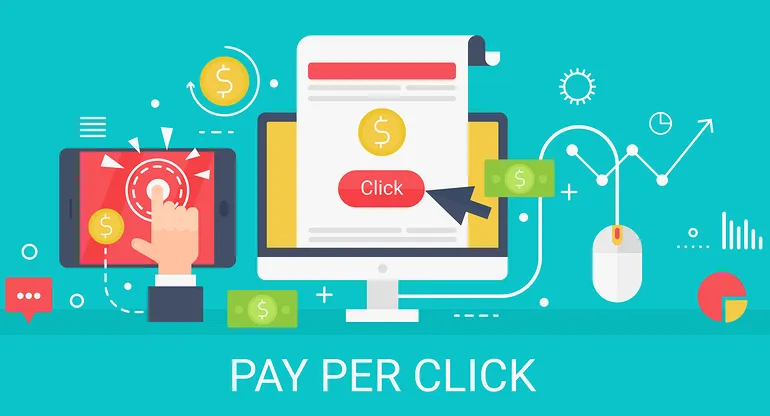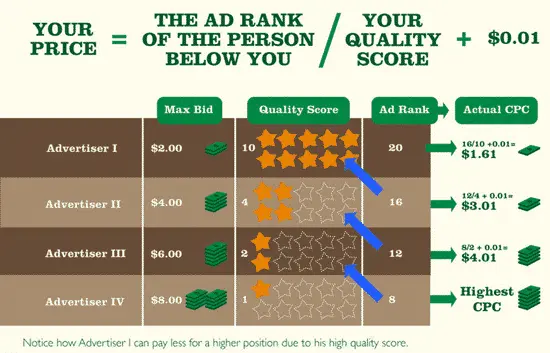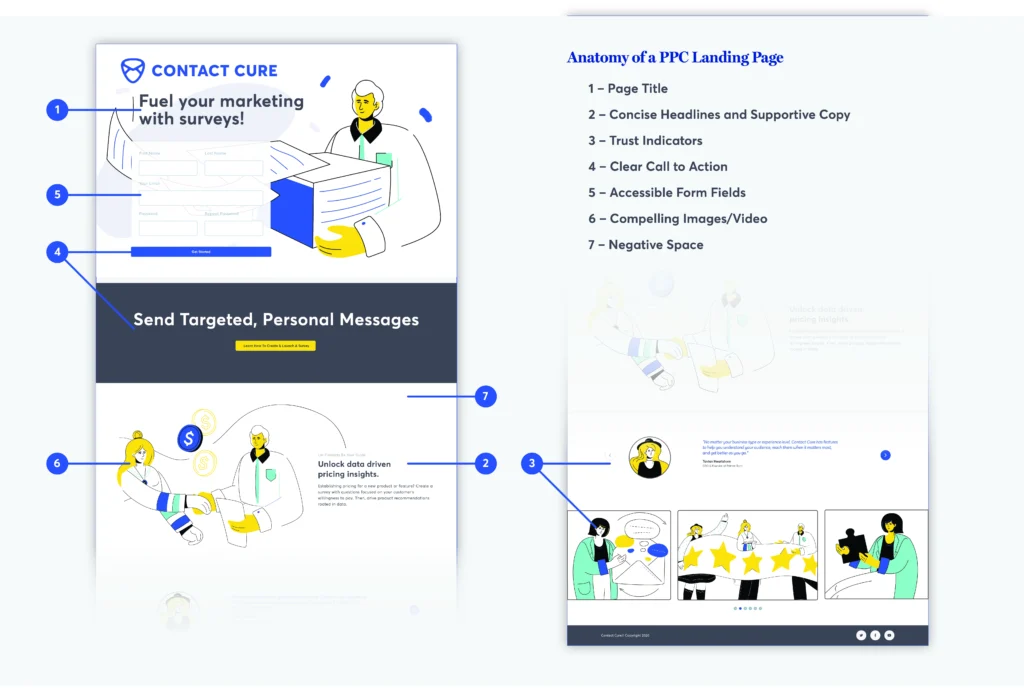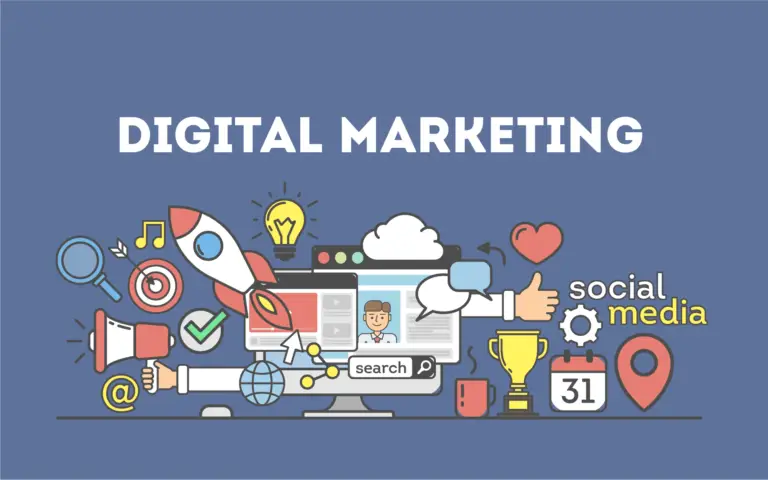Introduction to Pay-Per-Click Advertising

What is Pay-Per-Click (PPC)?
Pay-per-click (PPC) advertising is a model of Internet marketing where advertisers pay a fee each time one of their ads is clicked. Essentially, it’s a way of buying visits to your site rather than attempting to earn those visits organically. Search engine advertising is one of the most popular forms of PPC, where advertisers bid for ad placement in a search engine’s sponsored links when someone searches for a keyword related to their business offering.
Importance of PPC in Digital Marketing
PPC is a crucial element in the digital marketing toolkit. It offers businesses the opportunity to reach potential customers quickly and efficiently. Unlike organic search, which can take months to show results, PPC can drive traffic and conversions immediately. This immediacy can be vital for new product launches, limited-time offers, or any situation requiring quick visibility.
How Pay-Per-Click Advertising Works

The Mechanics of PPC
The basic premise of PPC advertising is straightforward: you create ads and then bid on keywords that your target audience will use when searching for products or services like yours. When a user types in one of those keywords, your ad might appear at the top of the search results. If the user clicks on your ad, they are directed to your website, and you pay the search engine a small fee for that click.
Critical Components of a PPC Campaign
A successful PPC campaign is built on several key components:
- Keywords: These are the search terms for which your ad will appear.
- Ads: These are the messages users see when searching for your keywords.
- Landing Pages: These are the web pages that users are directed to after clicking your ad.
- Bids: These are the amounts you are willing to pay for each click on your ad.
- Budgets: This is the total amount you will spend on your campaign.
Benefits of Pay-Per-Click Advertising

Immediate Results
One of the primary benefits of PPC is the ability to see results almost instantly. Once your campaign is live, your ads can appear in search results immediately, bringing in traffic and potential customers without delay. PPC Ads are beneficial for time-sensitive campaigns or when you need a quick boost in visibility.
Measurable and Trackable Data
PPC advertising provides a wealth of data that you can use to measure the effectiveness of your campaigns. You can track impressions, clicks, and conversions and analyze this data to understand your ads’ performance. This transparency lets you make informed decisions and optimize your campaigns on Google Analytics for better results.
Setting Up a Pay-Per-Click Campaign

Choosing the Right Platform
Several platforms are available for PPC advertising, each with unique features and audience. Google Ads is the most popular, but other platforms like Bing Ads, Facebook Ads, and LinkedIn Ads also offer valuable opportunities depending on your target audience.
Keyword Research and Selection
Keyword research is a critical step in setting up a PPC campaign. You need to identify the search terms that your potential customers are using. Tools like Google Keyword Planner, SEMrush, and Ahrefs can help you find relevant keywords and understand their search volume and competition.
Crafting Compelling Ads
Your ads need to be compelling enough to attract clicks. Crafting Compelling Ads involves writing engaging ad copy that speaks to the needs and desires of your target audience. Use strong calls to action (CTAs) and highlight the unique benefits of your products or services.
Keyword Research for PPC

Tools for Keyword Research
Practical keyword research tools are essential for identifying the best keywords for your pay-per-click PPC campaigns. Google Keyword Planner is a popular choice, offering insights into search volumes and competition levels. Other tools like SEMrush, Ahrefs, and Moz provide valuable data and competitive analysis.
Long-Tail vs. Short-Tail Keywords
When selecting keywords, it’s essential to understand the difference between long-tail and short-tail keywords. Long-tail keywords are longer and more specific phrases with lower search volume but higher conversion rates. Short-tail keywords are broader terms with higher search volumes but are usually more competitive.
Creating Effective PPC Ads

Writing Engaging Ad Copy
The success of your pay-per-click PPC campaign largely depends on the quality of your ad copy. Write explicit, concise, and persuasive ads that address your audience’s pain points. Use emotional triggers and strong CTAs to entice users to click on your ads.
Using Ad Extensions
Ad extensions are additional pieces of information that you can add to your ads, such as phone numbers, locations, or extra links. They can increase your ads’ visibility and click-through rate (CTR) by providing more options and making your ads more informative.
Bid Strategies in PPC

Manual Bidding vs. Automated Bidding
Choosing the right bid strategy is crucial for the success of your pay-per-click campaign. Manual bidding allows you to set specific bids for your keywords, giving you more control over your costs. Automated bidding uses algorithms to adjust your bids based on your campaign goals, which can save time and optimize performance.
Setting Bid Adjustments
Bid adjustments let you increase or decrease your bids based on specific criteria, such as the time of day, location, or device. Setting Bid can help you maximize your budget by allocating more funds to high-performing segments and less to underperforming ones.
Ad Rank and Quality Score

Factors Affecting Ad Rank
Ad Rank determines the position of your ad in search results. It’s calculated based on your bid amount, the quality of your ads, and the expected impact of ad extensions. A higher Ad Rank means better visibility and potentially more clicks.
Improving Quality Score
Quality Score is a metric that reflects the relevance and quality of your pay-per-click ads and landing pages. Improving your Quality Score can lead to higher Ad Ranks and lower costs per click (CPC). Focus on creating relevant ads, choosing appropriate keywords, and optimizing your landing pages.
Landing Page Optimization for PPC

Importance of Relevant Landing Pages
Your landing page is where users land after clicking your ad, and it plays a significant role in converting visitors into customers. A relevant and well-designed landing page can improve your Quality Score and increase your conversion rates.
Best Practices for Landing Page Design
Ensure your landing page is relevant to your pay-per-click ad copy and keywords. It should be user-friendly, with a straightforward CTA and easy navigation. Use engaging visuals, compelling headlines, and concise content to keep visitors interested and encourage them to take action.
Tracking and Measuring PPC Performance

Setting Up Conversion Tracking
Conversion tracking is essential for understanding the effectiveness of your pay-per-click campaigns. It involves tracking users’ actions after clicking your ads, such as purchasing or filling out a form. This data helps you measure your return on investment (ROI) and optimize your campaigns.
Analyzing PPC Metrics
Regularly analyzing your PPC metrics is crucial for continuous improvement. Key metrics to monitor include click-through rate (CTR), conversion rate, cost per click (CPC), and return on ad spend (ROAS). Use this data to identify strengths and weaknesses.
For more insights on digital marketing strategies, visit our Website and find more niches related to you.
Q&A: Common Questions about PPC Advertising
Q: How much does PPC advertising cost?
A: Pay-per-click (PPC) advertising costs vary depending on factors like your industry, competition, and the keywords you’re targeting. On average, businesses can expect to pay between $1 and $2 per click, but highly competitive keywords can cost significantly more.
Q: How long does it take to see results from a PPC campaign?
A: One of the key advantages of PPC is the speed at which you can see results. Unlike SEO, which can take months to show significant progress, PPC campaigns can start driving traffic and conversions almost immediately once they are live.
Q: What is the difference between PPC and SEO?
A: PPC and SEO are strategies to drive traffic to your website, but they operate differently. Pay-per-click involves paying for ads that appear in search results, providing immediate visibility and results. SEO involves optimizing your website and content to rank organically in search results, which can take longer but offers sustainable, long-term traffic without ongoing ad costs.
Q: How do I choose the right keywords for my PPC campaign?
A: Conduct thorough keyword research using tools like Google Keyword Planner, SEMrush, and Ahrefs. Focus on keywords relevant to your business, with a good balance of search volume and competition. Consider using a mix of short-tail and long-tail keywords to reach a broad audience while targeting specific, high-conversion phrases.
Q: What is a Quality Score, and why is it important?
A: Quality Score is a metric used by Google Ads to measure the relevance and quality of your pay-per-click (PPC) ads and landing pages. It affects your ad rank and the cost per click (CPC) you pay. A higher Quality Score can lead to better ad positions and lower costs, making optimising your ads and landing pages crucial for relevance and user experience.
Introduction: Quick pay-per-click (PPC) Knowledge Quiz
Question 1: What is PPC advertising?
- A) Paying for ad space on websites
- B) Paying for ad impressions
- C) Paying only when someone clicks on an ad
- D) Paying for social media posts
C) Paying only when someone clicks on an ad (Correct Answer)
Question 2: Which platform is most commonly associated with PPC?
- A) Facebook
- B) Google Ads
- C) LinkedIn
- D) Instagram
B) Google Ads (Correct Answer)
Question 3: What’s a common goal of pay-per-click campaigns?
- A) Increase brand awareness
- B) Drive website traffic
- C) Generate leads or sales
- D) All of the Above
D) All of the above (Correct Answer)
Question 4: What is the first step in setting up a PPC campaign?
- A) Writing ad copy
- B) Keyword Research
- C) Setting a budget
- D) Choosing ad platforms
B) Keyword research (Correct Answer)
Question 5: Which tool is commonly used for keyword research?
- A) Google Analytics
- B) SEMRush
- C) Mailchimp
- D) Hootsuite
B) SEMrush (Correct Answer)
Question 6: What should be considered when setting a PPC budget?
- A) Competitor bids
- B) Cost-per-click (CPC)
- C) Expected ROI
- D) All of the above
D) All of the above (Correct Answer)
Question 7: What does CTR stand for in PPC metrics?
- A) Clicks Through Rate
- B) Click-Through Rate
- C) Cost-Through Rate
- D) Clicks-To-Results
B) Click-Through Rate (Correct Answer)
Question 8: Which metric indicates the cost of acquiring a customer in pay-per-click (PPC) advertising?
- A) CPC
- B) CPM
- C) CPA
- D) ROAS
C) CPA (Correct Answer)
Question 9: What tool can be used to track PPC performance metrics?
- A) Google Analytics
- B) Photoshop
- C) Trello
- D) Slack
A) Google Analytics (Correct Answer)
Question 10: What is a ‘Quality Score’ in pay-per-click campaigns?
- A) A rating of the ad’s creative design
- B) A score given to the advertiser by Google based on ad relevance
- C) A measure of the quality and relevance of ads, keywords, and landing pages
- D) The number of positive reviews an ad has received
C) A measure of the quality and relevance of ads, keywords, and landing pages (Correct Answer)




